Ask a question from expert
MV500 Advanced Powertrain Engineering Student ID Number
Advanced Powertrain Engineering (6MV500)
Added on 2021-11-22
About This Document
Piston motion is determined in terms of travel, speed, acceleration, and vibration. A crankshaft connects a number of components that can be used to capture the drivetrain energy during the rotational motion as well as combustion. The crankshaft is designed such that there is a backbone centrally located to hold all the other components via a coaxial cylindrical rod. It is referred to as the crankpin. The crankshaft turns the pistons up and down in a circular motion. For the piston to spin evenly, other components are added to the crankshaft to help the engine run smoothly.
MV500 Advanced Powertrain Engineering Student ID Number
Advanced Powertrain Engineering (6MV500)
Added on 2021-11-22
Advanced Powertrain Engineering
Student Name
Student ID Number
Institutional Affiliation
Instructor
Date of submission
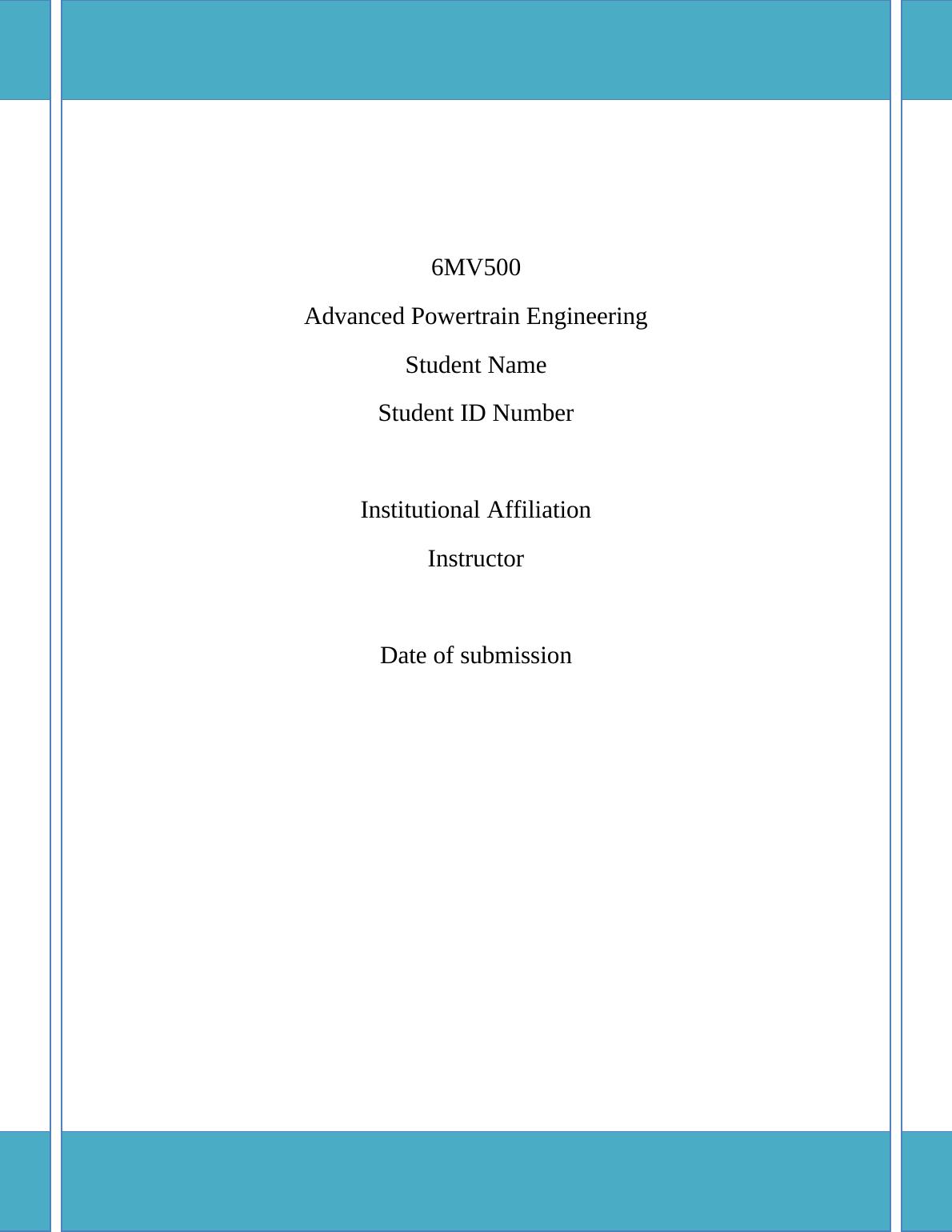
PISTON MOTION..........................................................................................................................2
INTRODUCTION.......................................................................................................................2
AIMS & OUTCOMES.................................................................................................................3
EQUIPMENT...............................................................................................................................3
RESULTS....................................................................................................................................3
CALCULATION AND ANALYSIS...........................................................................................3
DISCUSSION..............................................................................................................................6
CONCLUDING REMARKS.....................................................................................................11
REFERENCES...........................................................................................................................12
GEAR RATIO SELECTION........................................................................................................13
INTRODUCTION.....................................................................................................................13
AIMS & OUTCOMES...............................................................................................................15
ANALYSIS................................................................................................................................15
RESULTS..................................................................................................................................15
DISCUSSION............................................................................................................................15
1
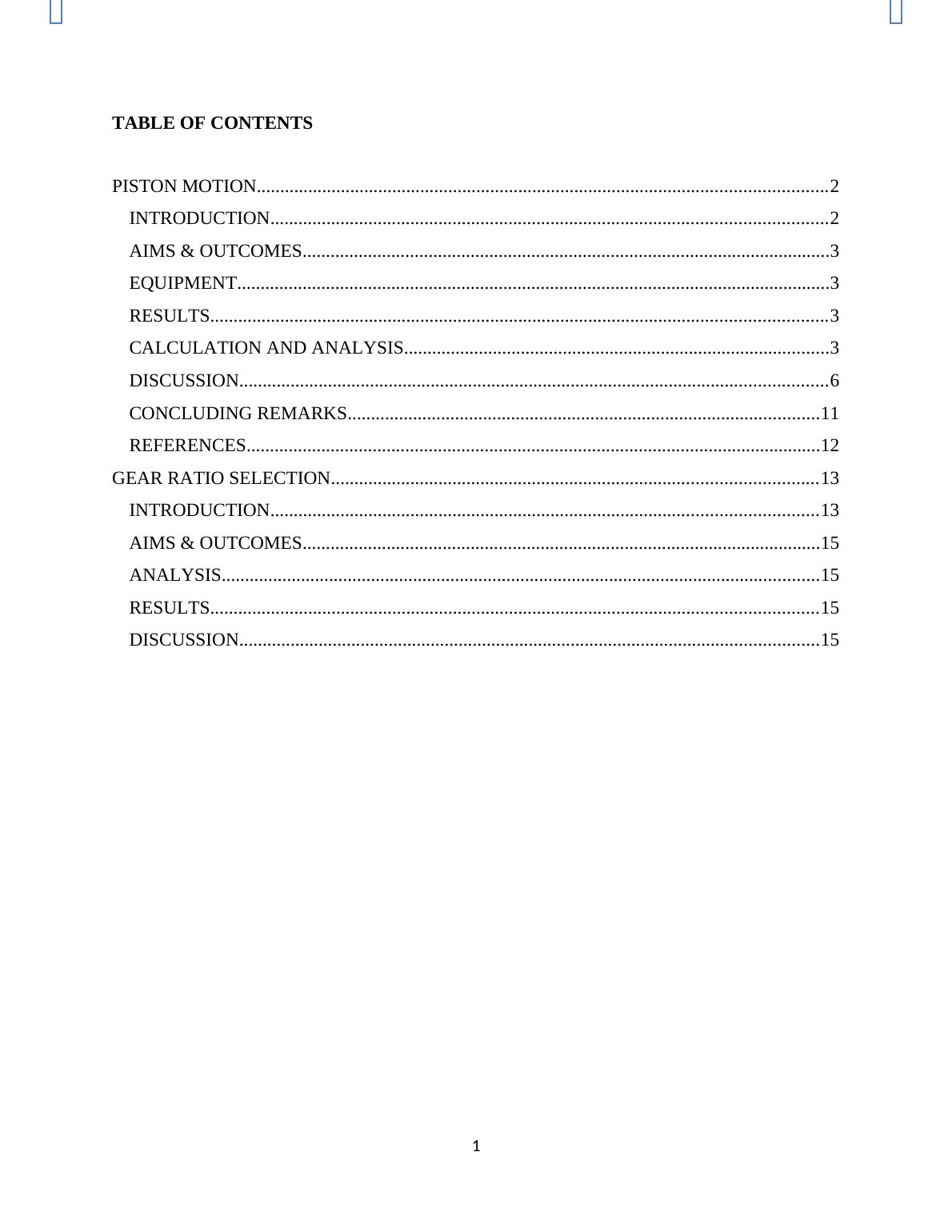
Figure 1 Piston motion for the crankshaft [source: Wikander,2004]..............................................3
Figure 2 The plot of the travel distance against angle [Matlab R2018b]........................................4
Figure 3 plot of speed on torque generation [Matlab r2018b].........................................................5
Figure 4 The road run test I [Matlab r2018b]..................................................................................6
Figure 5 The piston assembly [Maskinelement Handbook, 2003]..................................................7
Figure 6 The piston force balance...................................................................................................9
Figure 7 The piston side thrust load..............................................................................................10
Figure 8 The four-stroke engine balance.......................................................................................11
Figure 9 Estimated power and torque curves for the engine.........................................................16
Figure 10 The road run test............................................................................................................17
Figure 11 Plot of te RPM against the time [Matlab r2018b].........................................................17
Figure 12 The maximum possible top speed of the vehicle..........................................................18
Figure 13 [Wang]...........................................................................................................................20
LIST OF TABLES
Table 1 Experiment Table...............................................................................................................3
Table 2 Powertrain crank rotation...................................................................................................4
Table 3 Vehicle payload system parameters.................................................................................16
2
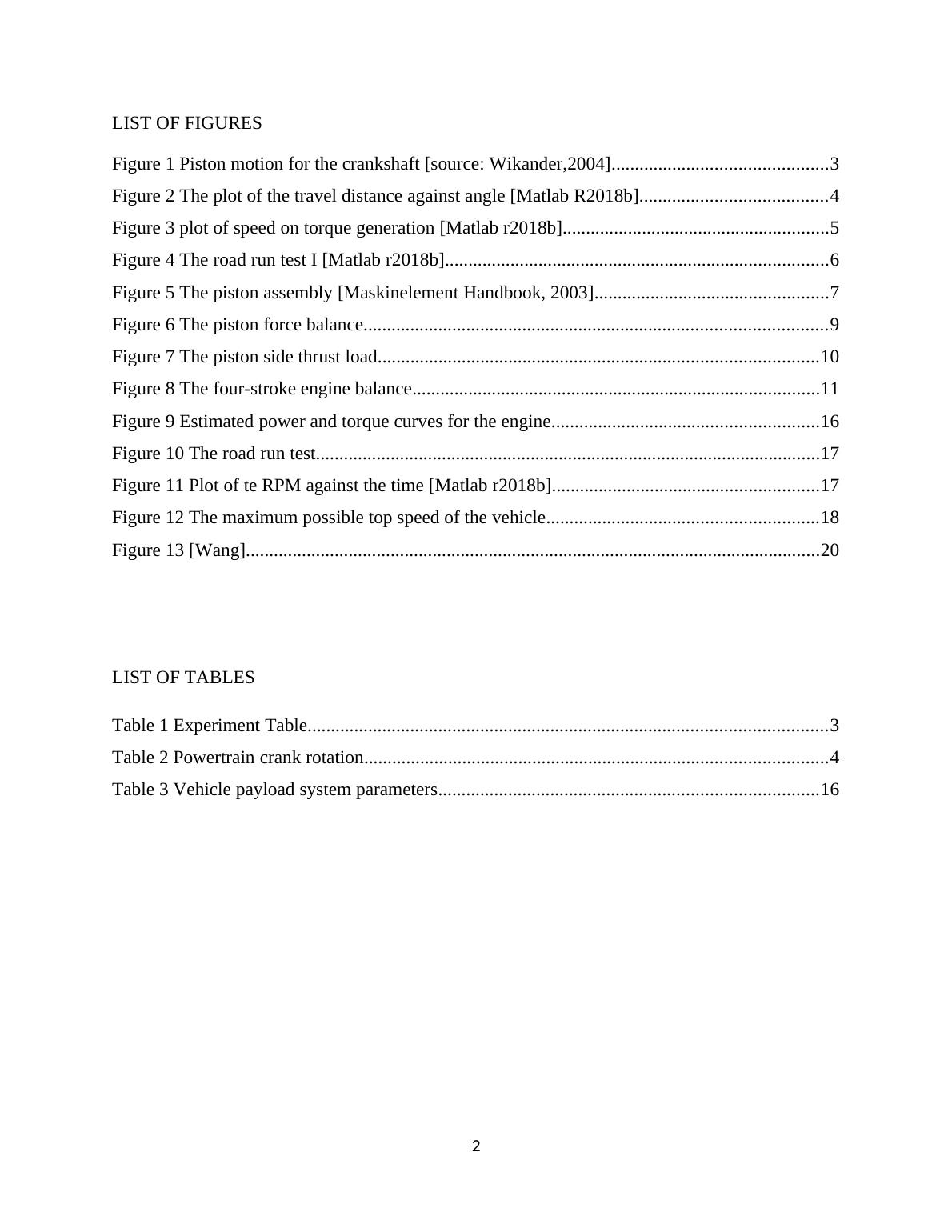
INTRODUCTION
Piston motion is determined in terms of travel, speed, acceleration, and vibration. A
crankshaft connects a number of components that can be used to capture the drivetrain energy
during the rotational motion as well as combustion. The crankshaft is designed such that there is
a backbone centrally located to hold all the other components via a coaxial cylindrical rod. It is
referred to as the crankpin. The crankshaft turns the pistons up and down in a circular motion.
For the piston to spin evenly, other components are added to the crankshaft to help the engine
run smoothly. In the crankshaft, the crank pin transfers the force of the piston and connecting
rods into a rotational power. The piston velocity is given as the instantaneous rate of change in
the position of the system with respect to a reference variable. It is the first derivative of the
position curve. To determine the mean piston speed,
MPS(ft per minute)=RPM∗2∗stroke(inches)
12(inches per foot)
¿RPM∗stroke
6
The piston acceleration determines the force exerted with respect to the weight of the object and
the acceleration.
3
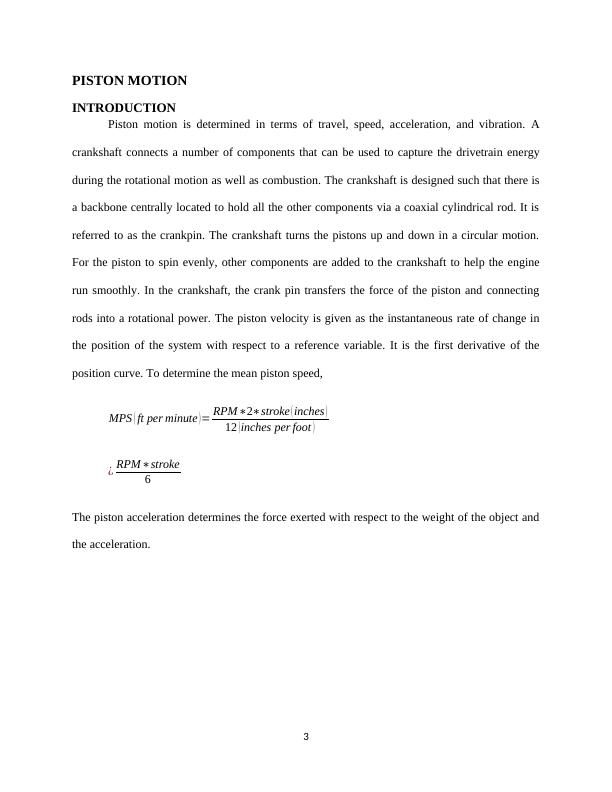
AIMS & OUTCOMES
(i) To determine the piston motion parameters and behavior for a particular engine
vehicle payload parameters
EQUIPMENT
(i) Engine simulation devices
RESULTS
Petrol mass and volume data
A 50ml density bottle was used and the warm up to room temperature.
Table 1 Experiment Table
Parameter Test 1 Test 2 Test 3 Test 4
Empty bottle 25.7 25.6 25.7 25.5
Bottle with petrol 62.3 62.3 62.3 62.3
CALCULATION AND ANALYSIS
For the powertrain crank rotation, the change in the rotation angle has an impact on the piston
motion and as a result, the travel distance and acceleration.
4
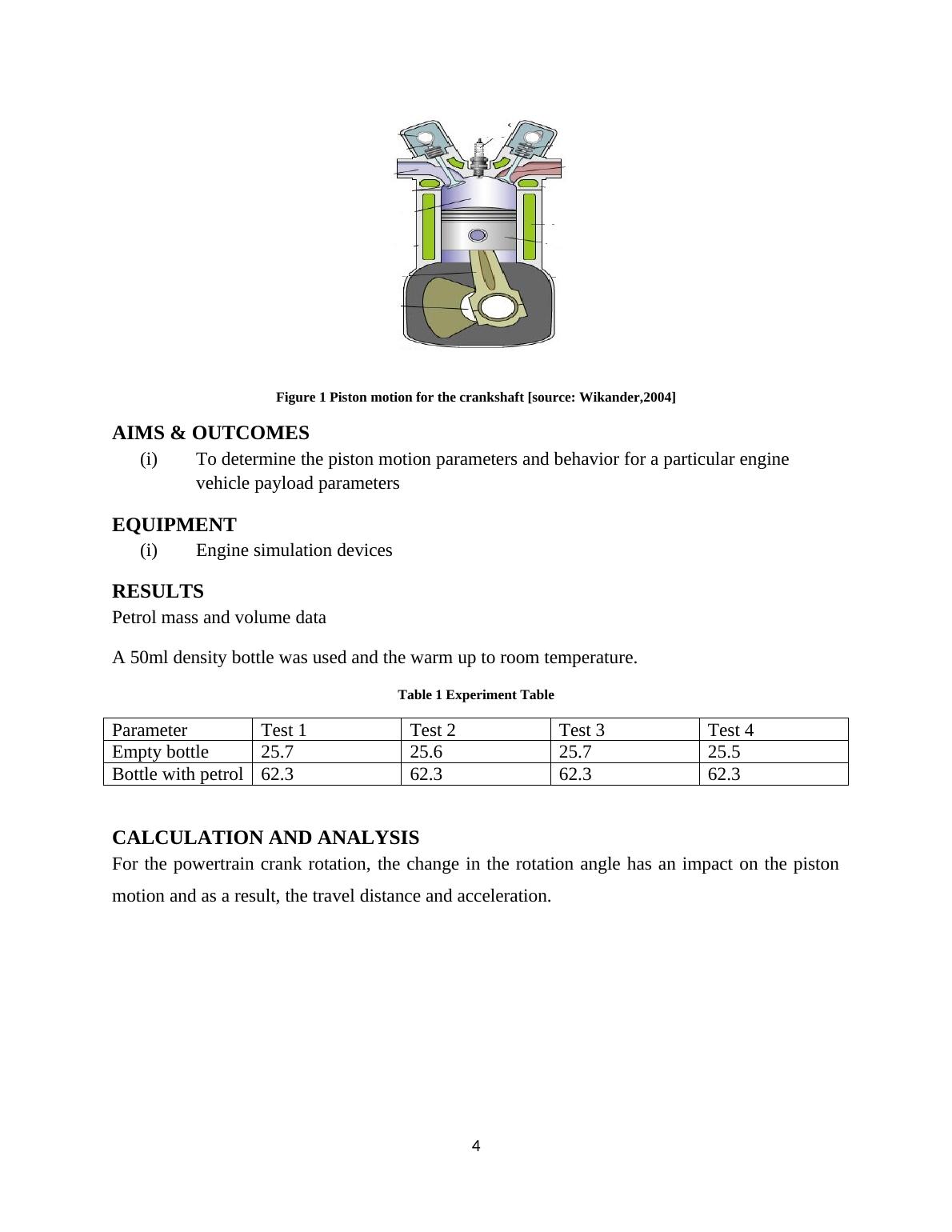
0 50 100 150 200 250 300 350 400
Angle
0
5
10
15
20
25
30
35
40
45
Travel Distance
Crankshaft Position-->Travel Distance
PowerTrain
Figure 2 The plot of the travel distance against angle [Matlab R2018b]
More information is provided on the speed versus the torque that is generated,
5
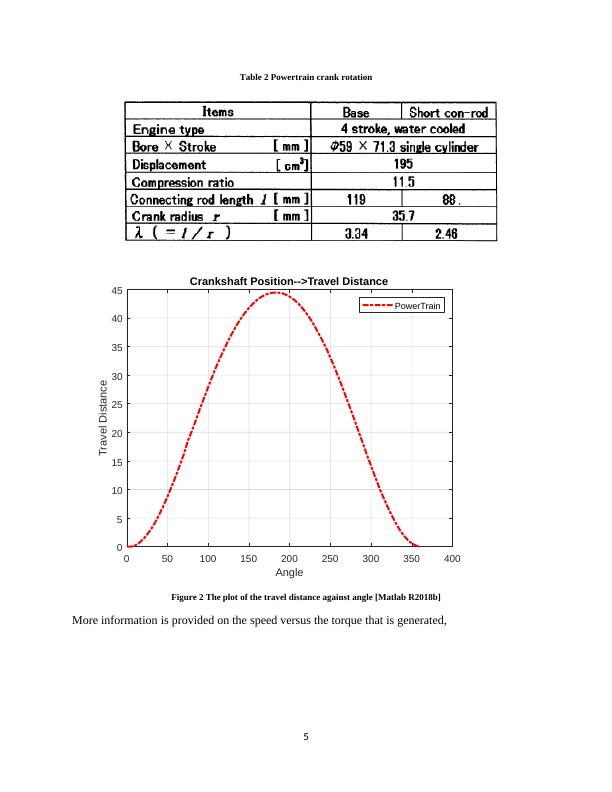
Speed
20
21
22
23
24
25
26
27
28
Torque
Speed on Torque Generation
PowerTrain
Figure 3 plot of speed on torque generation [Matlab r2018b]
6
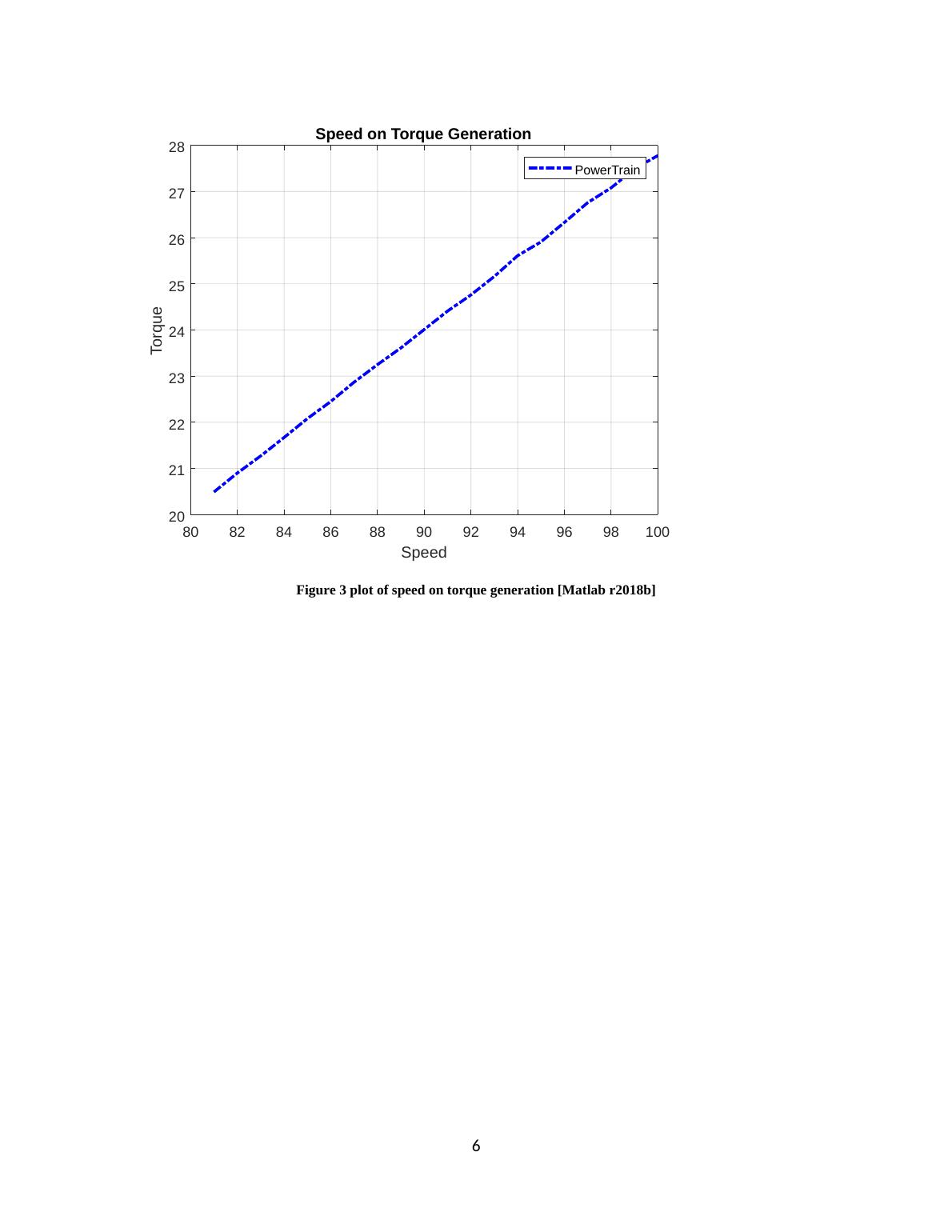
Time(sec)
0
2
4
6
Power(Watts)
Road Run Tests
Power
60 80 100 120 140 160 180 200
Time(sec)
0
20
40
60
Speed(km/h) Speed
60 80 100 120 140 160 180 200
Time(sec)
0
5000
10000
Revolutions per minute(RPM)
RPM against Time
Figure 4 The road run test I [Matlab r2018b]
DISCUSSION
There are different automotive components that rely on the lubrication that is applied on the
engine for it to operate and every experience affects more than one regime of lubrication for a
7
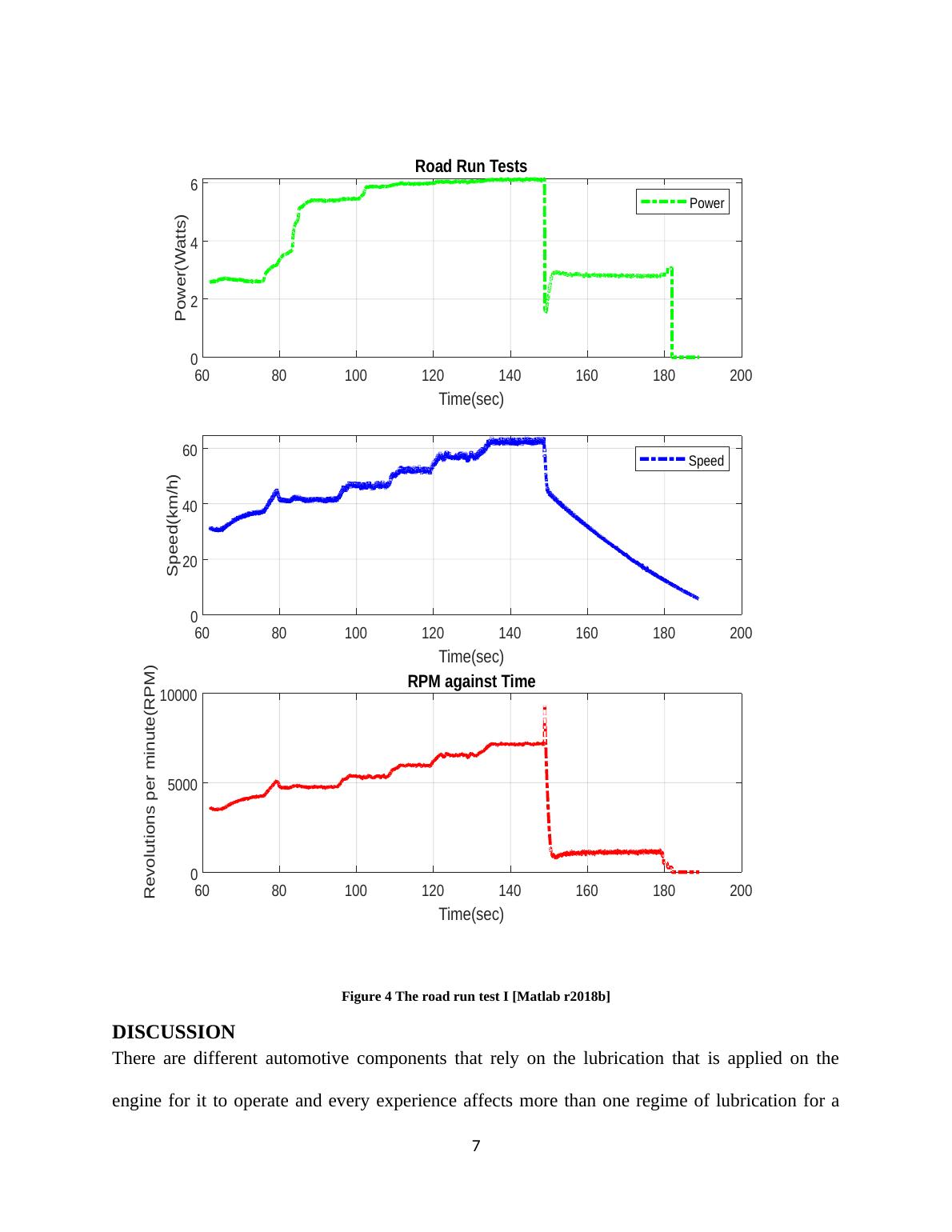
End of preview
Want to access all the pages? Upload your documents or become a member.